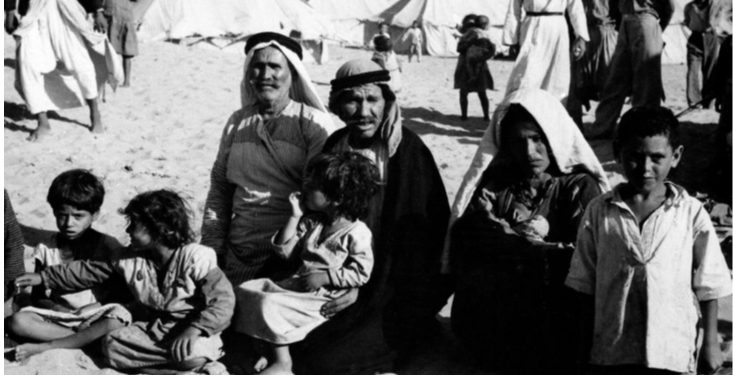Agencies-Gaza post
Palestinians mark 74th Nakba anniversary
Since the Israeli militias invaded Palestine on this day in 1948 and expelled tens of thousands of civilians, May 15 has been designated as Nakba Day.
Through a campaign of murder, rape, and intimidation, Israeli militias evicted 700,000 Palestinians from their homeland in 1948.
On May 15, millions of Palestinians and their allies around the world will commemorate the 74th anniversary of the ‘Nakba,’ or ‘catastrophe,’ which falls on the same day as Israel’s proclamation of independence.
While the day represents the completion of Israeli Jews’ aspiration for their own state after thousands of years of exile from their homeland, it also represents the expulsion of Palestinians from their homeland.
The Jewish state of Israel was established in the aftermath of a conflict that began in 1947 between Palestinians backed by some Arab states and Jewish settlers who had been arriving in hordes in historic Palestine for decades due to persecution in Europe and the rise of Zionism.
For hundreds of years, Jews and Arabs coexisted in Palestine as Ottoman Empire citizens, but that status quo came to an end during World War I, when the British Mandate of Palestine was established.
Despite the region’s considerable Arabic-speaking population, the UK’s 1917 Balfour declaration openly gave Palestine over to the Israeli movement.
The migration of Jews to the territory accelerated over the next three decades, fueled by persecution in Europe, causing tensions with indigenous Palestinians who feared being pushed out of their homeland.
Their worries were realized when Israeli settlers created militias with the goal of capturing as much territory for the nascent Jewish state as possible while also reducing the Arab population in the newly gained territories. As a result of this campaign, dozens of Arab communities vanished from the map.

















